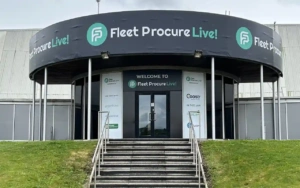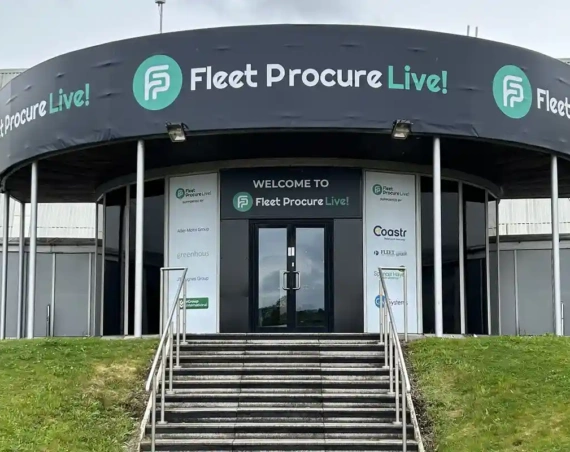Jeff Whitcombe, of BCF Wessex, takes us through the government’s Growth Plan, and examines how it might affect leasing product take up in the fleet sector
OFFICIALLY published today as the Growth Plan (23 September 2022), the so called ‘Mini-Budget’ from Chancellor Kwasi Kwarteng has delivered huge tax cuts, the highest for 50 years, while formally confirming the substantial spending and borrowing commitments.
These arise from the introduction of the Energy Price Guarantee that will protect consumers against rising energy costs; and the Energy Bill Relief Scheme, designed to protect businesses against the spiralling costs generated by wider geo-political events.
With these protective measures forecast to reduce peak inflation by around 5%, the second strand of the new government’s fiscal policy is to reinvigorate economic growth.
It intends to do this by targeting a medium term annual growth rate of 2.5%, via a range of tax incentives and reforms designed to deliver higher wages and greater opportunities, whilst also funding increased public spending.
To spark investment the government will reform the pension charge cap to stimulate pension fund investment and introduce around 40 new investment zones designed to encourage businesses to invest, build and create jobs across the country.
To incentivise private sector businesses in other parts of the country the government will abolish the increase in the rate of corporation tax due to come into effect in April 2023 and legislate to permanently set the Annual Investment Allowance, which gives a 100% first year allowance for capital expenditure, at £1 million per year.
NIC and HSCL taxes go down
To further promote growth, tax simplification will be ingrained within future fiscal policy and regulatory burdens will be relaxed, with legacy EU rules to be replaced or repealed by the end of December 2023 and headline grabbing reform to IR35 to be introduced from April 2023.
Businesses will be encouraged to recruit due to the abolition of the Health and Social Care Levy (“HSCL”) which was planned to be introduced on 06 April 2023, and the reversal of the temporary rise in National Insurance Contributions (“NIC”) at the earliest opportunity, which is 06 November 2022.
While acknowledging that unemployment is at a 50 year low, the Chancellor noted that there are still more job vacancies than people available to fill them. Hence, he announced measures to promote work.
Universal Credit reforms are being introduced to encourage people back to the workforce, alongside personal tax changes, including the reversal of the temporary increased NIC rates and abolition of the HSCL, and the acceleration of the cut in basic rate tax for UK taxpayers (so that excludes those living in Scotland) from April 2024 to April 2023, which are designed to deliver increased net pay.
Finally, highlighting that high rates of tax reduce the incentive to work, invest and start a business, the Chancellor has sought to encourage entrepreneurs to invest in the UK by abolishing the additional rate of tax in the UK, meaning that the highest headline rate of tax payable from April 2023 will be 40% (except in Scotland where the setting of tax rates is devolved).
What will this mean for the fleet industry?
First, given the industry’s growth product is salary sacrifice, although the income tax and NIC rate cuts will reduce the savings available, it should be borne in mind that net salaries will increase as a result of these changes. As a result, we don’t foresee any downturn in the popularity of salary sacrifice.
It will be interesting to gauge whether these measures will stimulate the personal contract hire (PCH) market but with cost of living concerns being only partially mitigated and further interest rate rises already pencilled in, it’s likely that there won’t be a significant uptick.
Second, how will whole life costs be affected?
The abolition of the HSCL and immediate NIC rate reduction will reduce these across the board, and will be particularly welcomed by public sector employers and small and medium enterprises that will be unaffected by the repeal of the corporation tax increase. But there might be a greater long-term impact for larger employers, especially for those larger corporate fleets that have already set their company car tax policy on the presumption that the rate would rise to 25%, or partnership fleets working on the basis that the highest rate of income tax would be 45%.
Finally, will the investment incentives, such as the Annual Investment Allowance, encourage the purchase of plant and machinery, including vans, over leasing? Perhaps we need to await the actual Budget to determine this as it’s likely there’ll be more investment driven measures, perhaps including the extension of the super-deduction for companies?
More information on the Growth Plan
Click here to read the BCF Wessex Tax Guide.

Fleet Procure Live! a massive hit with brokers
Fleet Procure Live!, the first ever ride and drive event for brokers, took place at Millbrook Proving Ground

Broker News Newsletter 14 May 2024
Catch up on the latest leasing broker news in the 14 May 2024 Broker News newsletter

Express Vehicle Contracts named Best Independent Vehicle Leasing Company 2024 in SME UK Transport Awards
Express Vehicle Contracts named Best Independent Vehicle Leasing Company in the
SME UK Transport Awards 2024.

Optimism over Discretionary Commission Arrangements says Jonathan Kirk KC
There are three key reasons for optimism over the issue of discretionary commission arrangements (DCAs), delegates to a VRA meeting were told

Stellantis adds Chinese low-cost Leapmotor to UK brands
Stellantis will add low cost Chinese electric car maker Leapmotor to its UK brand line up in March 2025 as part of its joint venture

Fifty2One broker website business up for sale
Clitheroe based software specialist Fifty2One is offering up its leasing broker website concern for sale. Are you interested in the business?




